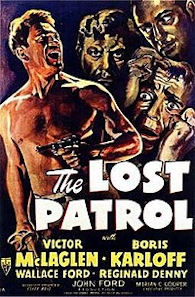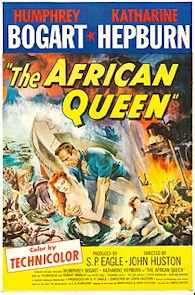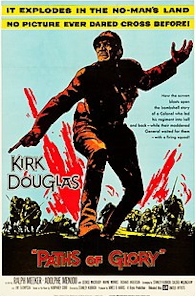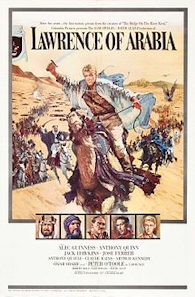1917
Boring, poorly paced and scripted. Derivative of much better war films.
Film Review © 2020 by Trip Reynolds
Action/Drama
Directed by Sam Mendes; Screenplay by Sam Mendes and Krysty Wilson-Cairns; Produced by Pippa Harris, Callum McDougall, Sam Mendes, Brian Oliver, and Jayne-Ann Tenggren; Co-Produced by Michael Lerman and Julie Pastor; and Executive Produced by Jeb Brody, Ricardo Marco Budé, and Ignacio Salazar-Simpson.
Starring: George MacKay as Lance Corporal William Schofield; Dean-Charles Chapman as Lance Corporal Tom Blake; Mark Strong as Captain Smith; Andrew Scott as Lieutenant Leslie; Richard Madden as Lieutenant Joseph Blake; Claire Duburcq as Lauri; Colin Firth as General Erinmore; Benedict Cumberbatch as Colonel Mackenzie; Daniel Mays as Sergeant Sanders; Adrian Scarborough as Major Hepburn; Jamie Parker as Lieutenant Richards; Michael Jibson as Lieutenant Hutton; Richard McCabe as Colonel Collins; Chris Walley as Private Bullen; Nabhaan Rizwan as Sepoy Jondalar; and Michael Cornelius as Private Cornelius.
The story. Set in World War I, the British High Command sends two soldiers, Lance Corporal William Schofield and Lance Corporal Tom Blake, to the front to warn/stop British Colonel Mackenzie of the Second Battalion from being massacred in a trap set by the Germans. Lance Corporal Tom Blake has an additional incentive: his brother is under the command of Colonel Mackenzie.
"1917" is way, way, way too episodic, and the central characters constantly ignore the kind of "common sense" generally expected of an actual soldier. For example:
The scene: A German fighter pilot crashes, and our somewhat-cowardly-and-dumb pseudo-heroes Lance Corporal William Schofield and Lance Corporal Tom Blake go to his rescue. Schofield and Blake ignore "common sense" to remove weapons from the German pilot. Then, as Blake is attending to the German's care, Schofield walks away to do whatever and the German quickly stabs Blake with a knife. Blake dies.
The scene: Our somewhat-cowardly-and-dumb pseudo-hero, Lance Corporal William Schofield, sees someone approaching him, but instead of using "common sense" and take cover to protect himself and secure time to validate the identity of this unknown person, he continues walking toward this unknown person, without his helmet, shots are fired at him, he drops his rifle, he runs frantically as German soldiers shoot at him, he lacks the presence of mind (i.e. "common sense") to pick-up abandoned weapons from fallen soldiers he runs past, he eventually jumps into a river, and is washed-up in a cesspool of dead bodies, reminiscent of Haing S. Ngor as Dith Pran in the 1984 Academy Award nominated Best film, "The Killing Fields."
The scene: Given the urgency of Schofield's assignment to save the lives of thousands of British soldiers, after our somewhat-cowardly-and-dumb pseudo-hero, Lance Corporal William Schofield finally reaches Colonel Mackenzie's Second Battalion, instead of using "common sense" to promptly contact Colonel Mackenzie, he procrastinates as if in shock or delirious or whatever, and takes time to listen to British troops singing; but eventually Schofield gives Colonel Mackenzie his orders from British High Command not to engage the Germans; Colonel Mackenzie reluctantly orders his troops to retreat. Then, in remembrance of the dying wish of Lance Corporal Tom Blake, Schofield begins his search for Blakes brother, Lieutenant Joseph Blake, which requires him to rummage through the outdoor infirmary of wounded and dead bodies, reminiscent of Scarlett O'Hara in the 1939 classic, "Gone With The Wind."
Some of the action and dramtic sequences are compelling, but not without appearing staged. "1917" spends more time with Schofield and Blake stupidly running and hiding from the enemy than crafting an intellegent plan to achieve their objective quickly and safely. Plus, the focus of the sparsely written script is not about being victorious, but the apparent ineptness of British forces and the mediocrity of basic survival when such is in the hands of somewhat-cowardly-and-dumb pseudo-heroes.
Given this film genré, the absence of truly heroic images embelishes the mediocrity of this film. There are no "name above the title" heroes in this film. There are no "leading" men (Daniel Craig, Robert Downey, Jr., etc.) or "leading" women (Nicole Kidman, Zoe Saldana, etc.). Oh, there are a few acts of useless self-sacrifice, but the overall tone of this film is not heroic, nothing like the final scene of Steve McQueen in "Hell Is For Heroes (1962)." Of course, nowadays, all military personnel and every civilian first-responder (police, fire, medical rescue, etc.) are often labeled a hero. There was a time when the act of simply putting on a uniform didn't automatically qualify someone as a "hero" or someone special. The "job" is the job; nothing more or less, and as consistently conveyed by the most awarded soldier in World War II, Audie Murphy, and the most awarded soldier in World War I, Alvin Cullum (Sergeant) York, doing the job involes humility not recognition. Unfortunately, in our current social climate of always being "politically correct" about everything, and giving everyone an award so as not to exclude anyone, this "modernized" war film seems to suggest that even cowardice, running from the enemy, is a virtue.
Consistent with this writer's review of "Dunkirk," likewise, "1917" is blatantly pretentious by posturing to be greater than it is, and it's deceptive to suggest "1917" as equal to or greater than any of the following exciting World War I and World War II era films, most of which are highly thought-provoking or controversial, epic or near-epic, and noninated for multiple Academy Awards. Given the aforementioned, here's a laundry list of war films worthy of your interest and purchase.
When you have no sense of history, no sense of dramatic perspective, it's easy, it's very easy to inaccurately label "1917," as something more than it is, and "1917" does NOT rise to the level of reality such as documentaries like "Shoah (1985)," or a film with the heroism of "Hacksaw Ridge (2016)," or a film with the scope of hopeless abandon and awe of "Empire of the Sun (1987)."
The acting performances were perfunctory and by-the-numbers. Music by Thomas Newman was equally by-the-numbers with plenty of crescendos and decrescendos on cue to manipulate and sustain your interest. Cinematography by Roger Deakins was dark and brooding, but crystal clear in glorious ARRIRAW (4.5K) (source format) Digital Intermediate (4K) (master format) Dolby Vision. Consistent with his work on "Dunkirk," film editing by Lee Smith was particularly lethargic.
Direction by Sam Mendes was dark, brooding, and lethargic. Film is 119 minutes, but felt like three-(3) hours due to its extremely slow pace. Film should have been trimmed by at least 29 minutes.
Recommendation: Presented above are thirty-six-(36) films that are signifcantly more compelling than "1917." Pick one. Pick two. You'll quickly discover "1917" is a total waste of your time.
.
.
_poster.jpg)
_01.jpg)




.jpg)
.jpg)
.jpg)
.jpg)
.jpg)
.jpg)
.jpg)
.jpg)
.jpg)
.jpg)
.jpg)
.jpg)
.jpg)
.jpg)
.jpg)
.jpg)
.jpg)
.jpg)
.jpg)
.jpg)
.jpg)
.jpg)
.jpg)
.jpg)
.jpg)
.jpg)
.jpg)
.jpg)
.jpg)
.jpg)